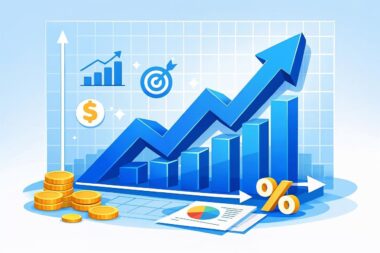Challenges and Solutions in Competitive Data Collection
In today’s fast-paced business environment, competitive analysis is vital for companies to maintain their edge. However, gathering reliable data can be extremely challenging. Organizations often face hurdles such as data privacy regulations, difficulties in accessing information, and the varying credibility of sources. These challenges inhibit decision-making and strategic planning. To overcome this, businesses must invest in robust data collection tools. Utilizing technology effectively can streamline the process, making it more efficient. Employing data analytics software can also help in filtering noise, allowing for the extraction of valuable insights. Moreover, fostering relationships with credible sources is essential for reliable data. Collaboration with market research firms can provide access to valuable insights that might be inaccessible otherwise. Legal compliance is another critical aspect to consider, as not adhering to regulations may lead to severe repercussions. Therefore, companies should stay updated on pertinent regulations and ensure all data practices are ethical. Training staff on best data practices and compliance should also be a priority. By addressing these challenges proactively, businesses can create a sustainable competitive analysis framework, enabling them to navigate competitive landscapes effectively.
Another significant challenge in competitive data collection is the ever-changing landscape of competitors. Companies must not only analyze their current competitors but also continuously monitor emerging players that could disrupt the market. This constant evolution can make it difficult to maintain an accurate and updated picture of the competitive environment. Employing competitive intelligence tools is an effective solution in this scenario. These tools can automate data collection from various sources across the web, providing organizations with timely insights. Additionally, it’s important to define key performance indicators (KPIs) for competitor analysis that align with your business objectives. This helps in focusing efforts on the most relevant metrics for your strategy. Data sourcing should include a mix of qualitative and quantitative data to gain a full perspective on competitors’ strengths and weaknesses. Surveys, customer feedback, and social media monitoring can work hand-in-hand with traditional data sources. Making data-driven decisions relies heavily on the quality of the information collected. Therefore, investing time in refining data collection methodologies and leveraging technology is crucial for effective competitive analysis.
The Role of Technology in Data Collection
As businesses recognize the importance of technological advancements, they increasingly turn to sophisticated tools and platforms to facilitate competitive data collection. Big data analytics, for example, allows organizations to process vast amounts of information that were previously inaccessible. Not only does this capability enhance data accuracy, but it also promotes deeper insights into market trends. Increased precision in data collection enables organizations to respond swiftly to competitors’ actions. Technology also aids in automating tedious tasks that would otherwise drain resources, thus allowing teams to focus on critical analysis and strategic thinking. Implementing advanced software solutions, such as business intelligence platforms, helps aggregate data from multiple sources, creating comprehensive dashboards for easy interpretation. Furthermore, machine learning algorithms enhance predictive analysis by identifying patterns that human analysts might overlook. As an alternative approach, employing data scraping techniques can gather extensive information from competitors’ websites efficiently and legally. However, using technology comes with responsibility; businesses must ensure compliance with data regulations while utilizing these tools. With the right technology in place, organizations can therefore leverage competitive data for sustained growth and innovation.
Data quality is paramount when it comes to competitive analysis. Collecting vast amounts of data is only useful if the quality of that data is maintained. Inaccurate or outdated information can lead to misguided decisions that could be detrimental to an organization. To ensure data quality, companies must establish stringent data governance frameworks. These frameworks include regular audits of data sources and ongoing training for employees on data integrity. Furthermore, maintaining a clear understanding of data sources is crucial; organizations should always verify the credibility of the channels through which they obtain information. Utilizing technology to track and manage data can significantly minimize discrepancies that may arise over time. Engaging third-party verification services can also add an additional layer of confidence in data accuracy. In addition, conducting routine competitor assessments helps organizations stay alert to any shifts in the market landscape that require immediate action. Ultimately, focusing on obtaining high-quality data is essential for informed decision-making and overcoming the challenges of competitive analysis.
Legal and Ethical Considerations
In the realm of competitive data collection, legal and ethical considerations are undoubtedly paramount. With regulations like GDPR and CCPA enforcing strict guidelines concerning data privacy, businesses must navigate this landscape carefully. Non-compliance can lead to severe penalties and reputational damage, making it crucial for organizations to commit to ethical data collection practices. Companies should clearly disclose how they obtain information and ensure that they have the necessary consent, especially when dealing with personal data. Additionally, ethical considerations entail respecting confidential information, which means steering clear from tactics like corporate espionage. Instead, organizations should adopt legitimate methods, such as open-source intelligence and public records, to gather valuable insights. It’s also beneficial to establish an internal compliance team responsible for overseeing data practices. This team can ensure that the data collected aligns with legal obligations while fostering a culture of integrity within the organization. By prioritizing legal compliance and ethical considerations, businesses can gain a competitive edge while building trust with stakeholders and customers alike.
Incorporating feedback mechanisms can significantly enrich the competitive analysis process. Organizations can seek input from employees, customers, and even industry experts to gather diverse perspectives on competitors. This not only provides valuable insights but also fosters a culture of continuous improvement. Customer feedback surveys, for instance, can reveal perceptions about competitors and inform strategies to differentiate products or services. Moreover, establishing a regular cadence for revisiting competitive analysis ensures that companies remain agile. Markets can shift quickly; therefore, companies must frequently reassess their competitive landscape. Utilizing collaboration tools can streamline the feedback process and ensure insights are documented effectively. Engaging cross-functional teams can unlock creative solutions that might not surface within narrower departmental scopes. Additionally, implementing a centralized repository for all gathered data supports easy access and comparison over time. Combining quantitative data with anecdotal insights allows for a multifaceted understanding of competitors. As companies actively engage in these feedback loops, they can continuously enhance their competitive strategies, effectively positioning their brands for sustained success.
Conclusion
In conclusion, navigating the challenges of competitive data collection requires a strategic approach to ensure success. Companies must acknowledge the complexities associated with data privacy, source credibility, and market dynamics. Implementing technology solutions enhances data quality and streamlines the collection process while adhering to ethical and legal standards. Organizations should prioritize establishing robust data governance frameworks that guarantee reliability and integrity in the information they gather. By fostering collaboration with industry experts and utilizing diverse feedback, businesses can obtain a comprehensive view of their competitive landscape. Continuous reassessment and adaptability are key to remaining relevant in an ever-evolving market. The utilization of automation tools further enriches the decision-making process, allowing companies to act quickly and effectively. Ultimately, a commitment to high-quality data alongside ethical practices can position businesses not only for survival but for thriving in competitive markets. As companies learn to leverage competitive analysis effectively, they ultimately pave their paths toward sustainable growth and innovation.
With a clear understanding of the challenges and solutions in competitive data collection, organizations can effectively navigate their market environments. This article underscores the necessity for businesses to invest in the right technologies while fostering a culture of ethical data practices. In doing so, they will be better equipped to make informed decisions that enhance their competitive positioning. By routinely engaging in competitive analysis, companies can stay ahead of trends, identify opportunities, and anticipate challenges that lie ahead. In essence, the proactive management of competitive data can lead to powerful insights and innovative strategies that fuel business growth. The insights gleaned from well-executed competitive data collection provide invaluable intelligence for strategy formulation and execution. As such, organizations that prioritize this process create robust frameworks for sustained success in their respective industries.





